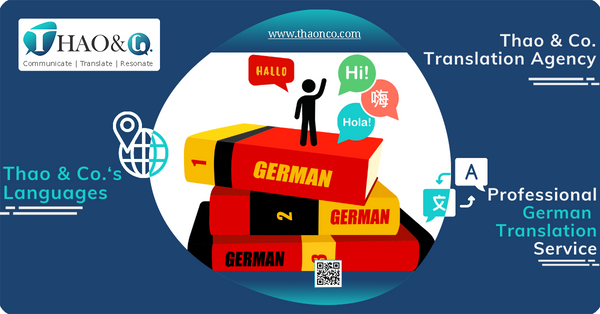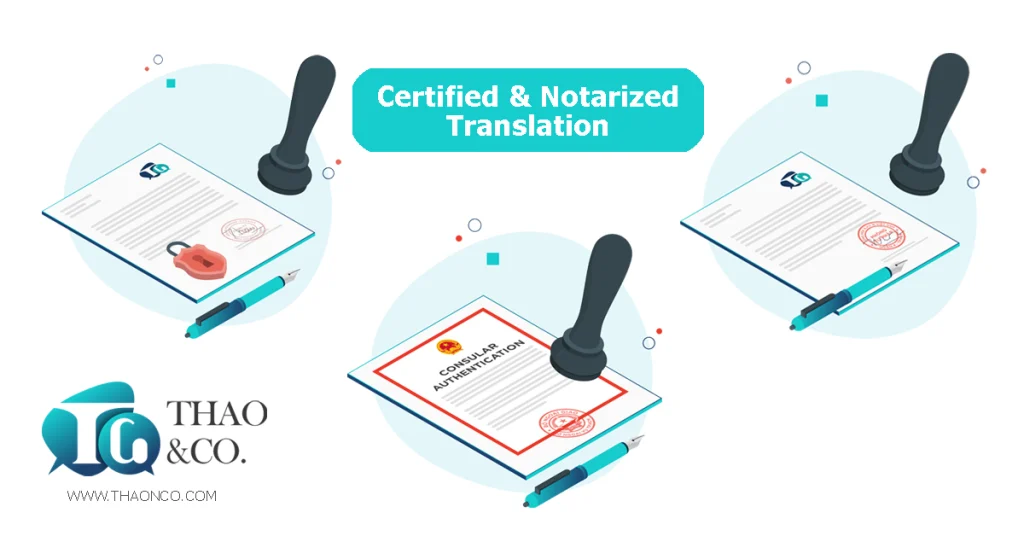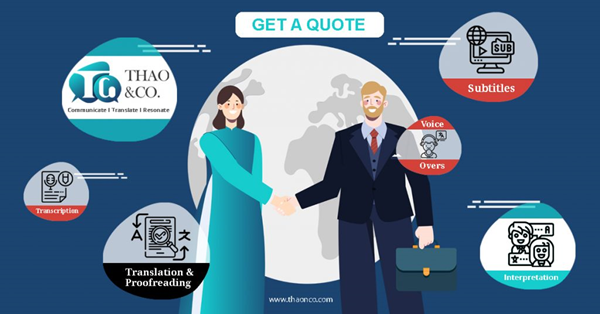German is among the most popularly spoken languages across the globe. Therefore, the demand for German translation services in different industries is also on an upward trend. Join Thao & Co. in this article to gain more insights into the German language, the challenges involved in translating it, and the rates of this service.
German ranks among the most extensively spoken languages globally. According to Ethnologue, the number of German speakers is about 185 million individuals. Furthermore, it occupies the position of the third most prevalent language in Europe, trailing only English and French.
German belongs to the group of Germanic languages within the Indo-European language family. It is the official language of many countries, including Germany, Austria, Liechtenstein, Switzerland, Luxembourg, and some regions in Belgium and Italy.
Let’s start by exploring some of the major challenges that translators and interpreters have to face when dealing with this special language.
German is considered a tough language due to its diverse and vast range of vocabulary and complex grammatical structures. Currently, the exact number of words existing in this language is still unclear.
However, based on the long-standing German dictionary, The Duden, the German language has approximately 75,000 core vocabulary words. Additionally, depending on different language origins and counting methods, the total number of German vocabulary words can range from 350,000 to 500,000.
According to Jens Olesen, the founder and director of the Olesen Academy – a leading German language institute in London, to achieve a high proficiency level in German, learners need to have a solid grasp of 15,000 to 20,000 words.
Similarly, the English language also has a considerable vocabulary. According to The Oxford English Dictionary (OED), there are approximately 500,000 English vocabulary words and phrases spanning from the past to the present tenses. However, to be fluent in English, learners only need to possess a solid command of around 10,000 words.

Back to German, another challenge of this language is that it consists of a significant number of specialized terms, which stem from the nation’s robust developments in science, technology, medicine, physics, chemistry, and other technical fields. Hence, to have a firm grasp of the language, German learners and translators need to invest considerable effort in learning and researching vocabulary.
Though also using Latin alphabet, German’s grammar is known to be more complex compared to other languages in the same group. Similarly to English, German has rules of verb conjugation as well, whereas some languages as Vietnamese do not have this concept.
When studying or translating German, it is a must to learn by heart all the verb conjunctions for every pronoun: ich, du, sie, er, es, ihr, and so on. Furthermore, the number of irregular verbs in German is much larger than those in English.
In German, nouns are classified into three genders: masculine, feminine, and neuter. This poses certain challenges for German translators, as those genders can be easily misemployed. In such cases, the translated sentence will sound funny and ambiguous.
Besides, German is also a unique language in terms of using and forming nouns. A noun in German can be created by joining 50 to 60 single words. These kinds of compound nouns have complex meanings making them hard to interpret.
While applying letters in the Latin alphabet, German has some more special characters, such as Ä, Ö, Ü, ß, and more. This makes it more difficult to pronounce German words in comparison to certain other languages.
Many people struggle with pronouncing the umlaut sounds (o, u) and final consonants in the German language. Thus, German interpreters not only need to have a deep understanding of the language but also continuously improve and refine their listening and speaking skills to ensure the quality of their work.
When translating German documents, translators have to consider multiple factors to produce an accurate and natural translation:

Currently, the demand for translation, notarized translation, and certified translation services for German documents is constantly increasing. Among them, notarized translation is the process by which a document, transaction, or paperwork is notarized by a notary public to validate its authenticity and legality.
In some countries, notary translation services are available at both state notary offices and private notary offices. To be more specific:
It is also important to fully grasp the requirements for document submission at each type of notary office in order to make a suitable choice for your needs. State notary offices can notarize all types of documents and administrative papers. On the other hand, private notary offices can only notarize certain types of documents and papers.
An important note is that most notary offices do not provide translation services. They partner with translation collaborators and only offer translation services for simple documents and in commonly spoken languages such as English.
For certified translation, it comes with a signed certification statement provided by a translation agency to confirm the translation’s accuracy. In many cases, such as applying for a tourist visa or submitting documents to international organizations, you may only need to have your translation certified by a translation agency to have your documents approved.
Particularly at Thao & Co., our Certificate of Translation Accuracy is provided completely free of charge to clients upon request. We also provide notary translation services at a reasonable additional fee if requested. Our full-service provision can save you much time and effort.

The pricing of German translation services is a common concern among clients. However, it is very difficult to provide an official and exact total fee since the cost may vary depending on various factors as follows.
These days, there are more and more German translation agencies emerging to cater to the growing demands of clients for German translation services. However, many individuals and organizations still struggle to determine where to seek German translation services and which agency provides reliable and high-quality translation services.
If you are in the same situation, Thao & Co. translation agency would be a viable option!

The team of experts at Thao & Co. consists of highly skilled professionals with a great passion for languages and extensive years of experience in the field. They are all native linguists whom we have rigorously selected.
We provide quality translation services in a wide range of fields and even for specialized domains. Our translation products are always guaranteed to be meticulously crafted to accurately convey the message, whether for creative translation or notarized translation.
Another outstanding advantage of our German translation services is the transparent and streamlined workflow. Each of our clients will be given a personal account to access our designated Dashboard. This account enables clients to easily monitor the project progress and facilitates quick and transparent file exchange.
This also ensures the highest level of security for your project by an end-to-end working process. For consultation regarding our services, please fill out the information in the Get a Quote Form, Thao & Co. will promptly contact you to provide detailed advice.
The information presented above is everything we want to share about our German translation services. As previously mentioned, German is regarded as a challenging language, and translators will have to encounter many difficulties when handling it. Adept German translators must therefore possess a firm knowledge of not only German vocabulary and grammar but its rich culture.
Mistakes made in the translation for notarization, certification, or any other purposes can lead to unfortunate consequences. At Thao & Co., we provide top-notch German translation services that will help you conquer all these challenges. With our professional expertise, your document translation project will be stress-free!